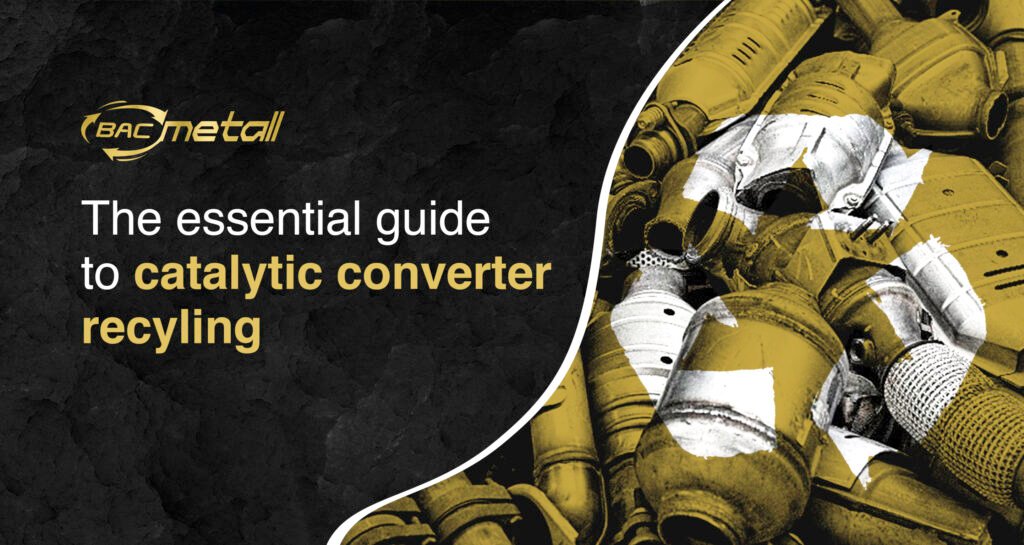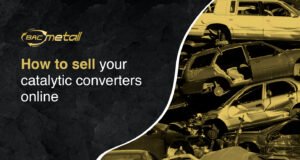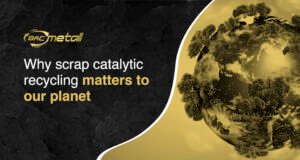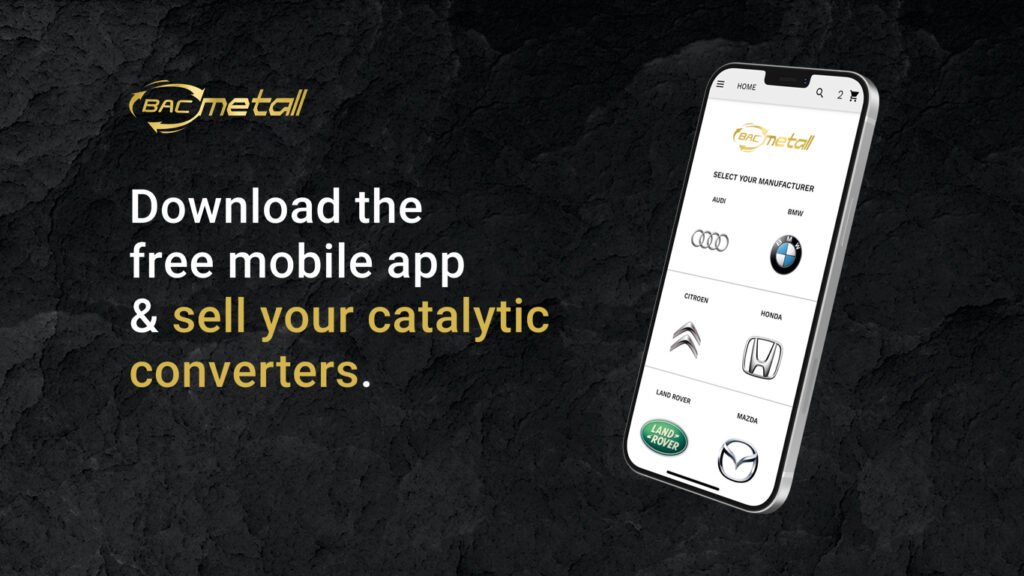What is catalytic converter recycling?
Catalytic converter recycling is a process that benefits the environment greatly. However, the positive impact it has on the planet is often overlooked in industry discussions as the primary objective for the seller is to earn an income.
Discussions are usually centered around fluctuations in the price of the precious metals involved; platinum, palladium, and rhodium.
When catalytic converter recycling companies talk about the recycling process for catalytic converters, we often dismiss what impact it has on the environment.

Why do we need catalytic converters?
Pollution from the automotive industry grew at an alarming rate during the 20th century, with vehicle emissions becoming cause for worldwide concern and contributing to global warming.
The catalytic converter was invented around 1950 by Eugène Houdry to scale back the environmental impact of toxic gases such as nitrogen oxide and carbon monoxide gas.
By the 1970s it was mandatory for car manufacturers to include catalytic converters in the development of all new road vehicles. This requirement soon spread across the world as governments and academics began to understand the harmful effects of such gases on the environment.
How does recycling scrap catalytic converters benefit the environment?
In recent years technology has improved to the point that we can now achieve a platinum group metal recovery rate of over 95%. This is largely due to the improvement of refining facilities like Bacmetall’s.
The three main benefits of recycling scrap catalytic converters are:
- The preservation of finite resources: Reusing recycled components lowers the burden of extracting new materials from the earth through the exhaustive mining process.
- A reduction in waste sent to landfills: Converters that are no longer used usually end up in landfills. Recycling catalytic converters prevents these components from taking up landfill space and from breaking down into tiny particles that can get into and pollute water sources.
- Customers can earn an income by selling scrap catalytic converters: The precious metals found in catalytic converters make them valuable assets that can provide a high return on investment. Each converter has a different quantity and grade of material, which we analyse carefully before making our customers an offer.
The implications of not recycling scrap catalytic converters.
What happens if we do not recycle?
There is huge waste production.
About 2 tons of rock are dug up to produce a typical 18k (5g) gold wedding ring.
About 5% of the energy we consume worldwide is used to grind rocks. That’s an enormous amount of energy.
Firstly, mining metal ore and fabricating the metals is a labour and energy intensive process, requiring extensive mining, costly processes and harmful chemical treatments.
For example, platinum ore has to be extracted from deep tunnels, requiring lots of digging energy, and a large amount of ore is needed for a significant amount of end-product platinum (1 ton of ore for 1 ounce of platinum).
Once extracted, platinum ore must be treated with chemicals to achieve the metal.
Not only is this polluting the environment, but it’s also harmful for the mine workers who are commonly underpaid and forced to work in harsh conditions.
Once you have the appropriate knowledge and tools (like our free app), the second biggest challenge is finding local suppliers of catalytic converters.
You can find catalytic converters in the following places:
- Local scrap yards
- eBay as used automobile parts
- Exhaust repair shops and muffler companies
- Performance enhancement garages
- Auto mechanics
- Used car dealers
Yes, hybrid cars have a catalytic converter. Any road legal vehicle with a combustion engine should have a catalytic converter installed.
Catalytic converters in hybrid cars usually function for a longer period with the aid of electric power.
Understanding catalytic converter recycling pricing.
If catalytic converter recycling is done correctly, in most cases, it will be compensated well.
Naturally, the question of “how to get it right?” arises.
It boils down to the most basic sales technique. Buy low, sell high.
Although it may look fairly simple from the outside there are plenty of factors that will influence the price of the catalytic converter.
What influences the price of selling catalytic converters?
- How many grams of each precious metal does it contain?
- What is the precious metal market price per gram? *Pd, Pt & Rh metal markets*
- What are the refining charges?
Vast knowledge or access to a lot of information is required to understand what a good catalytic converter price is.
Each car brand, model, engine type, country the car is made in, power, will have its own catalytic converters.
Try to imagine how many unique catalytic converters there are… millions. That should give you an idea about the volume of information a collector faces.
Selecting your trusted catalytic converter buyer will play an important role in your successful collector journey.
But don’t worry, we are here to help. Bacmetall provides you with helpful guidelines and a hugely useful catalytic converter catalog in the form of our free mobile app.
Want to sell your catalytic converters? Get in touch today.
Related blog posts.

How and where to sell your scrap catalytic converters in Europe?
Catalytic converters in the scrap industry are a hot commodity nowadays. With the prices of palladium, rhodium and platinum (the three precious metals found inside

How to sell your catalytic converter online
It is a known fact that one of the most common causes of air pollution is emission from auto vehicles. The toxic gases include nitrogen

Why scrap catalytic converter recycling matters to our planet
Why scrap catalytic converter recycling matters to our planet Catalytic converter recycling is a process that benefits the environment greatly. However, the positive impact

